- November 2013: Feature Story titled ‘Clinical Trials in India-Testing time' which carried an update by Late Prof. Ranjit Roy Chaudhury and other industry
- May 2014. LSW Interactive Conference titled “Clinical Research–Regulatory Norms-Current Challenges and the Future of Pharma Industry in India”, The Orchid Hotel, Mumbai)
- November 2014 LSW Roundtable-meeting between some top pharma companies' key personnel and Dr. Ranjit Roy Chaudhury, the then Advisor to Dr Harshvardhan, Minister of Health
- May 2015 LSW Roundtable-meeting between the then Joint Secretary, MoHFW K L Sharma, DCGI Dr.GN Singh, Asst. Drug Controller, AK Pradhan, Dr Roy Chaudhury and key personnel from the pharma companies
- July 2016 LSW Roundtable-meeting with Jai Priye Prakash, Secretary, Department of Pharmaceuticals
- April 2018, LSW Roundtable-meeting between the then Additional Secretary, MoHFW, Dr. R K Vats,and DCGI Dr. Eswara Reddy, and industry personnel was held to discuss the issues related to drugs and also medical devices
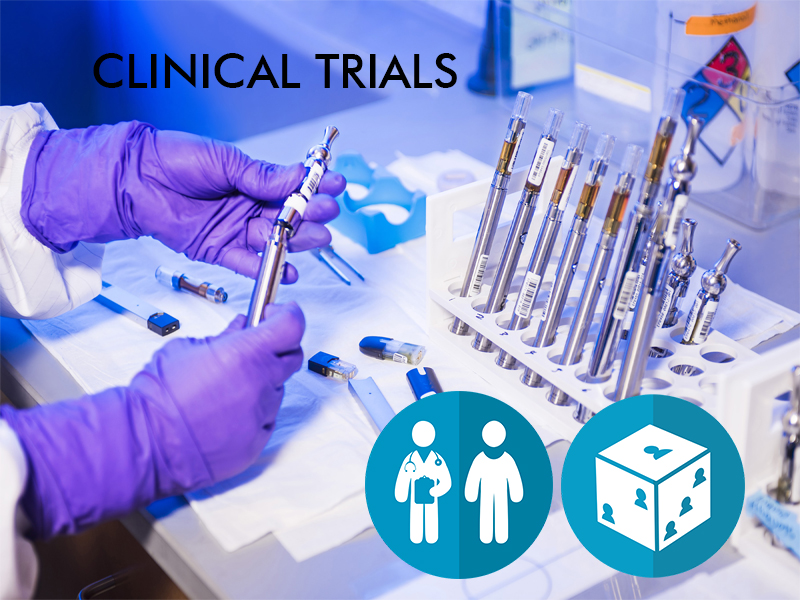
LSW is in its 10th year of existence. The inaugural issue featured an interview with Late Padmashri Prof. (Dr) Ranjit Roy Chaudhury, who was our well-wisher and the first Advisory Board Member. His guidance and suggestions on editorial and on other fronts helped us in our endeavour and to play an important role by supporting the industry in overcoming many of the issues in the area of clinical trials.
The objective of LSW is just not confined to writing articles on the industry and publishing other features, but also to help the industry in overcoming challenges posed by the regulatory norms. The other activity was to conduct interactive meetings and forums involving the industry personnel and the regulatory authorities.
During these ten years, LSW worked on to support the industry by way of editorials and conducting meetings.
Summary of LSW activites:
From the Publisher’s Desk:
DECENTRALISED CLINICAL TRIALS WITH DIGITAL TECHNOLOGY & RWE
Clinical trials are a driving force of innovation in life sciences. However, clinical trials are also costly and time-consuming. As a result, researchers are looking toward new models to accelerate the process and bring new, innovative therapies to patients especially after the COVID 19 pandemic.
One of the most exciting areas of research today is in decentralized clinical trials (DCT), which have the potential to reach more people, gather more meaningful insights and improve health equity.
A decentralized trial is, by definition, one that is done away from a central research facility. Patients complete their clinical trial visit at a remote location, either through virtual tools, such as video calls and patient reported electronic assessments, or by face-to-face interactions.
There are challenges when it comes to the adoption of DCT, as many patients are wary of sharing personal health data through digital channels. In order to solve this, researchers need to ensure that security and digital trust are embodied in the way DCTs are designed and executed.
Decentralized clinical trials apply digital technology to the clinical trial process, with innovations such as telemedicine, electronic questionnaires, wearables, electronic patient recorded outcomes and more. This drastically reduces the number of required site visits for patients. While this shift is part of a larger move towards remote medicine, DCTs are also instrumental in improving trial success and bringing new therapies to market.
It is also largely expected that DCT will also help improve health equity by increasing participation of minorities, who are still largely underrepresented. For example, according to FDA CDER data, 75% of participants in drug trials were white in 2020—yet the population demographics in the US have shifted significantly over the past decade. Between 2010 and 2020, the Hispanic or Latino population grew by 23%, while the multiracial population grew 276% in the same period1.
Most participants in a DCT, however, remain concerned about what happens to their data—how it is protected and what it is used for. It is critical that we ensure that we only collect data that is necessary and protect that data throughout the life cycle to the point of it becoming irrelevant—and that patients have a clear understanding of data protection and have control over that privacy. For the tech that is being used, it’s also important to have a clear data protection strategy when building partnerships with suppliers, knowing what their risk level is and how they are protecting data. And all of that has to be communicated clearly and transparently to patients. If they trust in the data protection, they will trust in the trial.
Decentralized clinical trials (DCTs) hold the potential to reach new, remote patient populations, innovate rare and orphan disease research, and accelerate medical discovery.
More than 15 countries in the World like Japan, Germany, Poland, Russia etc., have adopted the DCT and regulations are in place for conduct of DCT. But it will be some time before other countries consider decentralised Clinical trials and regulations are put in place.
LSWlifescienceworld www.lswlifescienceworld.com
To get to know the current scenario on the clinical studies and trials, LSW worked out an exclusive interview feature with Dr.Sanish Davis, Director, R&D, Janssen India (J&J) , President, ISCR (Indian Society for Clinical Research)
Dr Sanish Davis – R&D Director, Janssen India (J&J), President, Indian society for Clinical Research

Click here to view Dr Sanish Davis's profile
LSW: The pandemic generated an awareness among the general public about the importance of clinical research and clinical trials. The emergence of digital technology has its advantage in almost all aspects. How the digital mode of conducting clinical research and trials are being worked out now?
Dr. Sanish Davis: While the pandemic has been a catalyst in enhancing awareness about clinical trials, it is important that this is understood in the right context and against the right background. We seek the media’s support in driving this agenda with us.The pandemic not only catalysed the implementation of digital technology in clinical trials but also demonstrated their efficiency in ensuring shorter timelines and greater reliability of data without compromising on patient safety. Stakeholders across the spectrum were also quick to implement digital interventions be it the Regulators, Ethics committees, Investigators or sites.
LSW: What are the advantages in doing trials with the support of digital technology?
Dr. Sanish Davis: Digital technologies that leverage algorithms, data science, and health information can play a substantial role in drug development by reducing timelines for approvals and ensuring better collaboration, thus enabling institutions to bring drugs to the market faster. Globally, Clinical trials has seen wider adoption of digital technologies in clinical trial conduct e.g., Direct to Patient shipment of Medicinal Products, Home Healthcare Nursing, walk in clinics which are remote from the site but close to the patient’s location, use of digital biomarkers, e-informed consenting, e-health record directly feeding data to the e-CRF, etc. With the increasing penetration of mobile and internet services from a current 388 million users with 4G network enabled, India can only lead the way in implementing tech-driven clinical trials. Remote-based, decentralized trials with patients participating in clinical trials from the comfort of his/her home would also be a big advantage in a country like India and in the pandemic years, we have seen the regulators and the Ethics Committees agreeing with this approach. We are hopeful that this will continue in the post pandemic future too. Models like virtual trials/decentralized trials have gained momentum with the pandemic but it will take time before these become mainstream and the go-to model for operationalizing clinical trials. ISCR will collaborate with stakeholders to build the ecosystem for this in India and a lot of it would be in the form of sensitization and socialization of the concepts of virtual/hybrid trials with different stakeholders
LSW: Every advantage has its disadvantages- how is it on the clinical trial front with the application of RWE and RWD?
Dr. Sanish Davis: While the regulatory pathway for clinical trials are well covered by the NDCT Rules, there is lack of clarity when it comes to RWE and RWD studies. There is an expectation that some of these studies especially if they are interventional in nature to take approvals from the CDSCO. In several situations, even ethics committees ask for regulatory clearance for RWE/RWD studies which are observational in nature. As there is lot of work going on globally on how to collect Real World data and then make meaningful assessment of the same, it is imperative that India also has clear direction and regulations to support the same.
LSW: Are there any challenges at present from the regulatory norms, and if so what are the suggestions/recommendations you have in mind to set things right for a smooth proceeding?
Dr. Sanish Davis: After the release of the NDCT Rules 2019, there has been several positive signals that have come to the attention of global R&D organizations. There is now a stated position of the CDSCO that global trials will be approved within 90 working days, better clarity on medical reimbursement and compensation in case of clinical trial injury, post-trial access and who is responsible etc. are all important elements that makes global R&D organizations comfortable in placing work in India. While these clarifications have led to enablement of placing more late stage work in India, early stage discovery & development is still lagging behind. The government (through ICMR, DBT-BIRAC etc.) are keen to give a fillip to early stage drug development in India by setting up Phase I clinical trial centers. While this is a step in the right direction, there needs to be an enabling environment for placing more studies for compounds even discovered outside India. This will require slight tweaks to the policies/processes so that more work can come to India and thereby our Institutions can gain more experience and expertise.
LSW: After the downfall of clinical trials in India from 2010 for a period of around three to four years, things began to look somewhat better after some of the suggestions made by the Roy Chaudhury committee were implemented by the government agencies. Did those help in the growth of trial operations?
Dr. Sanish Davis: With the new Rules in place, clinical trials are beginning to pick up in 2019-early 2020 and we were hopeful of rebuilding global trust and confidence in doing clinical trials in India. However, the pandemic has temporarily halted this progress as the focus turned more towards COVID-19 trials and rightly so. What we now need is for more clinical trials to be conducted in India to find newer treatment options for the unmet medical needs of Indian patients and those across the world. For a country that has the world’s second largest population and the world’s highest disease burden, India’s share of global clinical trials has continued to drop over the years and is currently less than 2% (www.clinicaltrials.gov). The NDCT Rules has created a more robust regulatory framework for the conduct of clinical trials in the country. With the release of the New Drugs and Clinical Trial Rules in 2019, there is good clarity around several issues that were grey areas for global sponsors, like timelines for GCT approvals (90 days), post-trial access, ethics committee registration etc. Global sponsors usually plan their clinical development programs very early and it is difficult for them to change country footprint decisions rapidly before they are certain that the clinical research ecosystem is stable. Increasingly, global sponsors were able to include India as part of the clinical trial footprint from 2020 and this is reflected in the increasing number of trials being placed in 2022.
LSW: What are the number of clinical trials as on date that are approved by DCGI and are being conducted?
Dr. Sanish Davis: At present, there are over 200 active clinical studies underway in India. Given the country's high disease burden, that number is extremely low. ISCR believes that we will continue to see an increase in the years to come. (Number taken from clinicaltrials.gov – Active studies in India ).
LSW: Will India retain the position as the preferred destination for conducting clinical trial operations?
Dr. Sanish Davis: In the post pandemic period (2022 and beyond), there will definitely a continuing increase in clinical trials in India. After the release of the NDCT Rules 2019, the Regulators and the Ethics Committees in India accorded priority review for the amended clinical trial protocols during the pandemic period. In fact the Regulatory agency and Ethics committees adopted the digital way of working in a major way. It is crucial that these steps should be continued in 2023 and beyond for India to continue to have a seat on the table in the global clinical research community. The rising confidence of both in country teams and the global principals in Pharmaceutical sponsor firms and CROs will also ensure that more work is placed in India going forward.
For more information, LSW approached some industry professionals and sought their viewpoint on how digitalization is helping the process of doing clinical trials from the Covid days. Here are the excerpts:
Srinivas Pai Raikar, Head Business Development Site Solutions, Avacare India, NC, USA
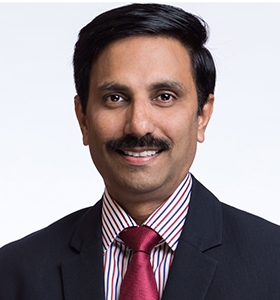
Click here to view Srinivas Pai Raikar's profile
The Covid-19 pandemic has had a far-reaching impact on clinical trials. It jolted the world of clinical trials in a way that it caught stakeholders unaware. Digital technology came to the rescue in an unprecedented global healthcare exigency that otherwise could have significantly impacted the overall conduct of clinical trials.
One major change has been the increased use of remote and digital technologies to conduct clinical trials, including virtual visits, remote monitoring, and online data collection collectively also called the Decentralized trials (DCTs). Decentralization has been the need of the hour. Pandemic provided much needed context for decentralization. Digital technology combined with seamless interaction between the patients and Clinical Trial sites facilitated by patient facing staff especially the Clinical Research Coordinators (CRCs) ensured that clinical trials continued during the pandemic, even when in-person visits were not possible.
Click here to read full in Viewpoint
Dr. Ramesh Jagannathan, Vice President, Clinical Research & Pharmacovigilance, Bharat Serum & Vccines Ltd
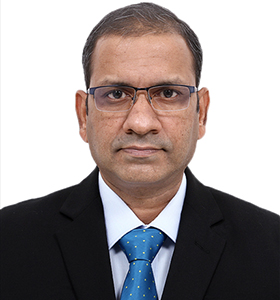
Click here to view Dr. Ramesh Jagannathan's profile
On an average it takes more than 12 years to develop new medicines with costs often going up to a few billion dollars. Once medicines are approved by health regulatory authorities and available for use by patients, only a proportion of them comply with their doctor’s prescription in real world scenario. In the development phase of new medicine, various types of clinical trials are conducted, which often include large scale randomized clinical trials. In these trials, patients who are very sick, especially those with co-morbid disease conditions are excluded and more homogenous patient population is selected by the concerned doctors and sponsors of the clinical trial. This limits the clinical insights into how the new medicine(s) and overall treatment would affect the general population affected by the particular condition. This is where conduct of real-world evidence (RWE) data generating studies becomes important. In the last few years, RWE studies are increasing being performed because of the further efficacy, quality of life, safety/tolerability and convenience of new medicines can be assessed in regular clinical practice setting.
Click here to read full in Guest Desk
Dr. Kiran Marthak, Medical Affairs, Phase I & Regulatory Affairs, Veeda Clinical Research
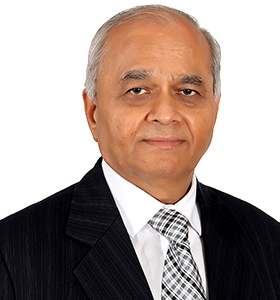
Click here to view Dr. Kiran Marthak's profile
The COVID 19 pandemic came with tremendous uncertainly but radically changed the world for life sciences companies to do their best to move quickly and safely. The companies undertaking clinical trials had to quickly adjust to support alternative ways to conduct trials also ensuring monitoring and caring for clinical trial participants for which physical access was not an option.
After a brief stagnation, caused by pandemic that disrupted clinical research globally, sharing and collaboration became the main themes of operation during clinical trials/studies. A wide variety of alternative approaches in clinical trials have been implemented which include remote monitoring, video visits, phone visits, e-Consent, and electronic health records (EHR). Regulatory agencies improved the flexibility, in how the trials operated, by adopting measures such as centralized monitoring, telemedicine visits, and remote source data verification (rSDV) for various trials. While many of these approaches have been around for several years, the COVID-19 pandemic served as a catalyst for adoption.
These newly adopted methods are influencing the evolution of clinical trials in a post-pandemic world. A few of them include:
1. The transition to decentralized trials: Earlier, majority of clinical trials were conducted in a centralized/localized manner – at a hospital site or a clinical facility or a large institute. The decentralized clinical trials allowed CROs to decrease implementation and recruitment times, thereby resulting in decreased cost of studies and enhanced retention of study participants. This occurred while balancing the rising concerns regarding data quality and regulatory compliance. Global pharmaceutical players successfully ran several trials for the COVID-19 vaccines, mainly decentralized. This led to development of vaccine, subsequent tests and release in record time despite restricted resources with the coordination and efforts of the researchers, government, and the medical community. These efforts clearly indicates that trials can be conducted faster, safer, and cheaper.
Click here to read full in Guest Desk
Anirban Roy Chowdhury, Associate Vice President, Sun Pharma
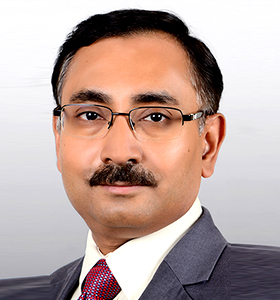
Click here to view Anirban Roy Chowdhury's profile
While patient-centricity is not a new idea, decentralized clinical trials (DCTs) are a recent evolution of medical research design that revolves around a patient-centric approach. DCTs are a new research methodology that enfolds clinical trial processes and formats around participants’ circumstances, preferences and characteristics rather than the other way around. They represent a gradual shift away from a trial methodology that requires compliance with rigid processes, such as visit to research sites on a regular basis for evaluation of clinical parameters by the Investigator. DCTs have been fuelled by advancements in digital healthcare technology. Increasing internet and smartphone penetration coupled with advancement in biomedical technologies have augmented digital healthcare in India and across the globe. Patient Centricity has been recognized as the biggest benefit of a decentralized study. With increasing internet demand in rural India, DCTs can lead the way for participation of rural patients in clinical trials in future.
Click here to read full in View Point
Dr. Chirag Trivedi, Sr. Director, Clinical Study Unit Cluster Head-India & South East Asia, Sanofi

Click here to view Dr. Chirag Trivedi's profile
The Covid-19 pandemic has highlighted globally, in the minds of public, the importance of clinical trials in proving the safety and efficacy of any intervention for treating or preventing any disease. Due to the pandemic induced lockdown, several steps were taken to ensure the safety of the trial participants and the study teams, and to preserve the integrity of clinical trial data. Digital technologies were used significantly for this – be it in connecting the clinical trial sites with the trial participants to evaluate their safety and well-being, or to deliver the investigational medicinal products directly to the trial participants’ homes in a contactless manner while preserving the product quality and integrity, or using the home healthcare services for performing some study related evaluations, drug administration, etc.
Click here to read full in View Point
LSW lifescienceworld
www.lswlifescienceworld.com